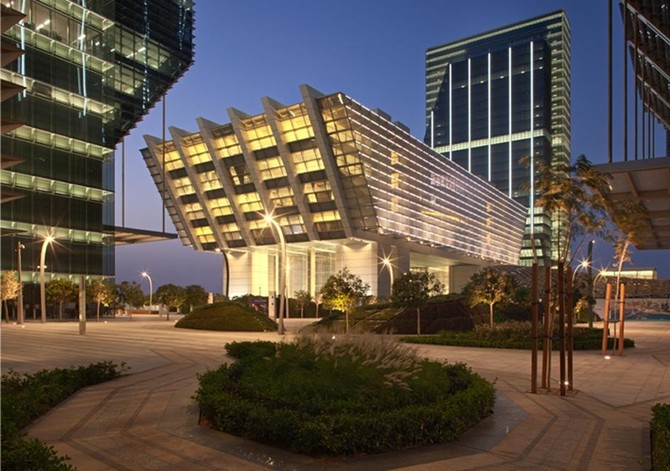DUBAI: Average office rents in Abu Dhabi continue to fall but recent macroeconomic data could translate into a more optimistic outlook for the sector next year, property consultancy Frank Knight said.
In the year to third quarter, average grade A rents across the city have fallen by 11.5 percent, Frank Knight said. Prime market rents on average stood at Dh1,774 per square meter annually, grade A at Dh1,150 per square meter and citywide rents at Dh1,167 per square meter.
“On the back of continued sluggish economic performance, Abu Dhabi’s occupier rental rates continued to trend down across all segments of the market. With weaker demand from the public sector and oil sector firms being the most significant factor underpinning the trend,” Knight Frank said in its report.
“Activity in the market continues regardless of these major cutbacks, however the vast majority of space requirements are in the 100 sqm to 500 sqm range with general trading and professional trading firms making up the majority of demand.”
Abu Dhabi’s non-oil sector was forecast to register higher growth rates, which can compensate for the current weakness in the hydrocarbon sector, while OPEC’s oil rebalancing was underpinning crude prices and may eventually support a possible reversal of job cutbacks in the government and oil industries. The two scenarios could work out well for the office rental market in Abu Dhabi, Knight Frank indicated.
Knight Frank also said vacancy remained stable as of the third quarter at 23 percent, and with supply forecast to go up by another 80,000 square meters next year, the overall vacancy rate was expected to increase slightly.
“The short to medium term outlook for Abu Dhabi’s office market remains negative, however we expect that not all of the forecast supply will come to fruition,” the property consultant said.
“The slowdown in new supply could provide a floor to rental values across
the capital in the long run. This is particularly the case in the Prime and Grade A segment, where supply is already somewhat limited,” it added.
Knight Frank particularly noted the increasing appeal of the Abu Dhabi Global Market area to possible corporate tenants after the emirate’s financial free zone approved the use of private Real Estate Investment Trusts (REITs) as Qualified Investment Funds.
“Given the recent increase in appetite in the region for REIT exposure, this may foster an increase in demand for office space within the ADGM,” it said.
Abu Dhabi office rents continue fall, but outlook may be better next year

-
{{#bullets}}
- {{value}} {{/bullets}}


